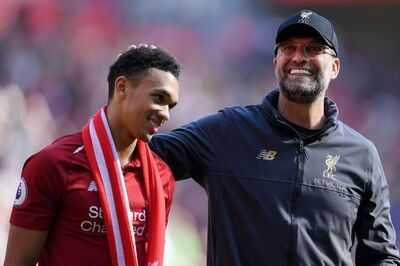New Delhi: Legacy companies "can no longer have the luxury of thinking that the small guy doesn't matter," Nestle India's outgoing managing director Suresh Narayanan told ET in an interview, adding that gradual urban demand recovery is visible.
"These small guys are not saying 'I want to sell one million tonnes'; they're saying 'I want to sell in six localities, in three pin codes'," Narayanan said. Legacy companies "really have to learn to think of smaller scale, more nimble, profitable operations, because the large-scale opportunities such as creating another Maggi noodles are going to be very difficult." They need to do multiple small things and fast, he said.
Narayanan is retiring after steering the maker of Maggi noodles and Nescafe coffee in India for a decade. He will be succeeded by former Amazon India country head Manish Tiwary effective August 1.
His comments come amid hundreds of regional and direct-to-consumer brands, ranging from noodles and tea to cosmetics and snacks, disrupting and taking share from large players, riding on lower prices, local innovation, and last-mile reach through quick commerce.
Chiefs of Tata Consumer Products, ITC and HUL, too, have called out increasing competition from smaller brands over the past 12-15 months.
"The game is definitely changing; it's changing across the world," Narayanan said. "In some parts of the world, big brands are no longer the marquees of quality and consumption. It's the local brands, the house brands."
1to3 noodles, Rungta tea, Balaji Wafers and Mario biscuits are among local brands disrupting the large brands. "It would be short-sighted for anyone to deny that in India there are pressure points being created locally; there are some good offerings that are being done," Narayanan said. "I tell my teams there are smaller companies who are more nimble footed rather than the big giants."
The Rs 20,000 crore-plus Nestle India's capex has increased from 1.8% of sales in 2015, to 10% in FY25.
He said regional competition is good for the industry. "It keeps companies from getting complacent," he said. "Yes, they're playing the pricing game but what we can bring to the table is much wider."
Narayanan said "companies have to increasingly work on keeping their brands relevant," and stressed the need for accelerating premiumisation. While keeping affordability intact, there are "enough opportunities for premiumisation in chocolates, milk and nutrition, coffee, pet foods," he said.
The India unit of the Swiss foods maker reported a 5.9% year-on-year increase in revenue for the April-June quarter at '5,096 crore, while net profit declined 13.4% to '647 crore, impacted by elevated commodity prices.
Nestle, Godrej Consumer Products, Marico and Dabur are among the companies that have indicated sequential recovery in urban and rural markets going forward, aided by easing inflation, good monsoons and policy incentives, signalling some relief for the sector after five quarters of slowing demand.
"I think that the times ahead will be definitely better. How much better? It's difficult for me to say, but possibly the worst is behind us," Narayanan said. "Underlying signs such as moderating food inflation, the income tax benefit which should start to kick in, good monsoon and urban demand which had been in slumber for a long time are picking up," he added.
Prices of edible oil, cocoa and coffee have stabilised over the past quarter, providing some relief from steep inflation.
"In a global context, too, we seem to be one of the most stable economies, compared to many others," the Nestle India chief said. "Mega cities and metros are now starting to come back positively. Plus, infrastructure spending is high... So, all this is putting money where it matters."
Meanwhile, recent weeks have seen a spate of leadership changes among large companies such as HUL and L'Oreal in India, and Diageo, Kenvue and WPP globally, amid tough market conditions and diminishing shareholder value.
Addressing a query on the unprecedented C-suite churn, Narayanan said with the markets in general now "a lot more brutal," the greatest skill for a CEO would be understanding the market, inspiring their people. "The CEO needs more courage, more communication, more confidence," he said. "Yes, competence is needed, but probably competence is not the number one quality that is required now."
"These small guys are not saying 'I want to sell one million tonnes'; they're saying 'I want to sell in six localities, in three pin codes'," Narayanan said. Legacy companies "really have to learn to think of smaller scale, more nimble, profitable operations, because the large-scale opportunities such as creating another Maggi noodles are going to be very difficult." They need to do multiple small things and fast, he said.
Narayanan is retiring after steering the maker of Maggi noodles and Nescafe coffee in India for a decade. He will be succeeded by former Amazon India country head Manish Tiwary effective August 1.
His comments come amid hundreds of regional and direct-to-consumer brands, ranging from noodles and tea to cosmetics and snacks, disrupting and taking share from large players, riding on lower prices, local innovation, and last-mile reach through quick commerce.
Chiefs of Tata Consumer Products, ITC and HUL, too, have called out increasing competition from smaller brands over the past 12-15 months.
"The game is definitely changing; it's changing across the world," Narayanan said. "In some parts of the world, big brands are no longer the marquees of quality and consumption. It's the local brands, the house brands."
1to3 noodles, Rungta tea, Balaji Wafers and Mario biscuits are among local brands disrupting the large brands. "It would be short-sighted for anyone to deny that in India there are pressure points being created locally; there are some good offerings that are being done," Narayanan said. "I tell my teams there are smaller companies who are more nimble footed rather than the big giants."
The Rs 20,000 crore-plus Nestle India's capex has increased from 1.8% of sales in 2015, to 10% in FY25.
He said regional competition is good for the industry. "It keeps companies from getting complacent," he said. "Yes, they're playing the pricing game but what we can bring to the table is much wider."
Narayanan said "companies have to increasingly work on keeping their brands relevant," and stressed the need for accelerating premiumisation. While keeping affordability intact, there are "enough opportunities for premiumisation in chocolates, milk and nutrition, coffee, pet foods," he said.
The India unit of the Swiss foods maker reported a 5.9% year-on-year increase in revenue for the April-June quarter at '5,096 crore, while net profit declined 13.4% to '647 crore, impacted by elevated commodity prices.
Nestle, Godrej Consumer Products, Marico and Dabur are among the companies that have indicated sequential recovery in urban and rural markets going forward, aided by easing inflation, good monsoons and policy incentives, signalling some relief for the sector after five quarters of slowing demand.
"I think that the times ahead will be definitely better. How much better? It's difficult for me to say, but possibly the worst is behind us," Narayanan said. "Underlying signs such as moderating food inflation, the income tax benefit which should start to kick in, good monsoon and urban demand which had been in slumber for a long time are picking up," he added.
Prices of edible oil, cocoa and coffee have stabilised over the past quarter, providing some relief from steep inflation.
"In a global context, too, we seem to be one of the most stable economies, compared to many others," the Nestle India chief said. "Mega cities and metros are now starting to come back positively. Plus, infrastructure spending is high... So, all this is putting money where it matters."
Meanwhile, recent weeks have seen a spate of leadership changes among large companies such as HUL and L'Oreal in India, and Diageo, Kenvue and WPP globally, amid tough market conditions and diminishing shareholder value.
Addressing a query on the unprecedented C-suite churn, Narayanan said with the markets in general now "a lot more brutal," the greatest skill for a CEO would be understanding the market, inspiring their people. "The CEO needs more courage, more communication, more confidence," he said. "Yes, competence is needed, but probably competence is not the number one quality that is required now."







